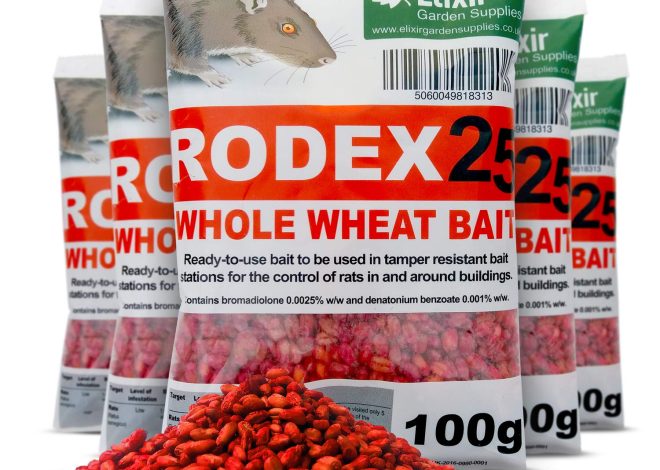
Cinnamon Health Benefits Unveiled: Top 10 Reasons to Embrace this Spice
Introduction to Cinnamon and its History
Cinnamon, the warm and aromatic spice that has been cherished throughout history for its incredible flavor, is not just a kitchen staple. This humble spice has also been revered for its numerous health benefits. Cinnamon Health Benefits From soothing inflammation to regulating blood sugar levels and boosting brain function, cinnamon holds an impressive array of medicinal properties.
But before we dive into the top 10 reasons why you should embrace this delightful spice, let’s take a brief journey through the fascinating history of cinnamon. Dating back thousands of years, cinnamon was highly prized in ancient Egypt and Rome. It was so valuable that it was considered a gift fit for kings and gods. Traders traveled far and wide to obtain this precious spice from Sri Lanka (formerly known as Ceylon) or other parts of Asia.
With such an intriguing past, it’s no wonder that cinnamon continues to capture our attention today. So get ready to unravel the secrets behind this beloved spice as we explore its nutritional profile and delve into its amazing health benefits!
Nutritional Profile of Cinnamon
Cinnamon not only adds a delightful aroma and flavor to our favorite dishes but also offers an array of health benefits. Let’s dig into the nutritional profile of this remarkable spice.
Cinnamon is packed with antioxidants that help protect our cells from damage caused by harmful free radicals. It contains polyphenols, which have been shown to have anti-inflammatory properties and may reduce the risk of chronic diseases like heart disease and cancer.
Additionally, cinnamon is a good source of minerals such as manganese, iron, calcium, and zinc. These minerals play vital roles in various bodily functions including bone health, immune system support, and energy production.
Furthermore, this spice contains high levels of fiber. Fiber aids digestion by promoting regular bowel movements and can help regulate blood sugar levels by slowing down the absorption of glucose into the bloodstream.
Moreover, cinnamon has been found to have antimicrobial properties due to its essential oils. These oils can inhibit the growth of bacteria and fungi in food or on surfaces.
Studies suggest that cinnamon may help lower LDL (bad) cholesterol levels while increasing HDL (good) cholesterol levels. This can contribute to better heart health and reduce the risk of cardiovascular diseases.
In conclusion,nutritional profile reveals that cinnamon is more than just a flavorful spice- it is packed with antioxidants,minerals,fiber,and antimicrobial compounds.
With its numerous health benefits,it’s no wonder why we should embrace this versatile spice in our daily lives!
Top 10 Health Benefits of Cinnamon

1. Anti-inflammatory Properties: Cinnamon is packed with antioxidants that help reduce inflammation in the body, protecting against chronic diseases like heart disease and cancer.
2. Antioxidant Powerhouse: With its high concentration of polyphenols, cinnamon acts as a potent antioxidant, neutralizing harmful free radicals and promoting overall health.
3. Blood Sugar Regulation: Research suggests that cinnamon can improve insulin sensitivity and lower blood sugar levels, making it beneficial for individuals with diabetes or pre-diabetes.
4. Lowering Cholesterol Levels: Studies have shown that consuming cinnamon regularly can help reduce LDL cholesterol levels while increasing HDL cholesterol levels, keeping your heart healthy.
5. Improving Brain Function: The aroma of cinnamon has been found to enhance cognitive function and memory recall, making it a great spice to incorporate into your daily routine.
6. Fighting Bacterial and Fungal Infections: Cinnamon possesses antimicrobial properties that inhibit the growth of bacteria and fungi, helping to prevent infections naturally.
7. Relieving Menstrual Cramps: Women who experience painful menstrual cramps may find relief by incorporating cinnamon into their diet or drinking warm cinnamon tea during their cycle.
8. Managing Irritable Bowel Syndrome (IBS): The anti-inflammatory properties of cinnamon can provide relief for those suffering from IBS symptoms such as bloating, cramping, and diarrhea.
9. Promoting Weight Loss: Adding a sprinkle of cinnamon to your meals or beverages could potentially aid in weight loss by boosting metabolism and curbing cravings.
10. Boosting Immune System: The immune-boosting properties found in this spice are due to its antibacterial compounds which can support overall well-being during cold seasons or when fighting off illness.
A. Anti-inflammatory Properties
When it comes to combating inflammation, cinnamon is a powerful ally. This fragrant spice has been used for centuries in traditional medicine to help reduce swelling and soothe various ailments. But what exactly makes cinnamon so effective in fighting inflammation?
One of the key components of cinnamon that contributes to its anti-inflammatory properties is its high concentration of antioxidants. These compounds help neutralize harmful free radicals in the body, which can contribute to chronic inflammation.
Additionally, cinnamon contains several bioactive compounds that have been shown to possess anti-inflammatory effects. One such compound is cinnamaldehyde, which gives cinnamon its distinct aroma and flavor. Research suggests that cinnamaldehyde may inhibit the release of inflammatory molecules in the body.
Furthermore, studies have found that certain types of cinnamon can inhibit enzymes involved in the production of inflammatory substances like prostaglandins and leukotrienes. By blocking these enzymes, cinnamon helps reduce inflammation at a cellular level.
Incorporating cinnamon into your diet is an easy way to harness its anti-inflammatory benefits. You can sprinkle it on oatmeal or yogurt, add it to smoothies or baked goods, or even brew a cup of comforting cinnamon tea.
By adding this delicious spice into your daily routine, you can enjoy not only its unique taste but also its remarkable ability to combat inflammation naturally! So why not embrace the health benefits of cinnamon today?
B. Antioxidant Powerhouse

Cinnamon is not only a delicious spice, but it also packs a powerful punch when it comes to antioxidants. These natural compounds are essential for our health, as they help protect the body from oxidative stress caused by harmful free radicals.
Antioxidants play a crucial role in preventing and repairing damage to cells and tissues throughout the body. They can help reduce inflammation, boost immune function, and even lower the risk of chronic diseases like heart disease and cancer.
In fact, cinnamon contains several potent antioxidants such as polyphenols and flavonoids that have been shown to have anti-inflammatory effects on the body. These antioxidants work by neutralizing free radicals before they can cause harm.
Research has also linked cinnamon’s antioxidant properties to improved blood circulation and reduced risk of age-related cognitive decline. Additionally, studies suggest that these powerful compounds may even help protect against certain types of cancer.
So next time you sprinkle some cinnamon on your oatmeal or add it to your favorite recipes, remember that you’re not just adding flavor – you’re also giving your body a dose of antioxidant power!
C. Blood Sugar Regulation
Cinnamon has long been hailed for its ability to regulate blood sugar levels, making it a valuable spice for those with diabetes or pre-diabetes. This is due to a compound found in cinnamon called cinnamaldehyde, which has been shown to mimic the effects of insulin and enhance glucose uptake by cells.
When we consume carbohydrates, our body breaks them down into simple sugars like glucose. Insulin is then released by the pancreas to help transport this glucose from the bloodstream into our cells where it can be used as energy. However, in people with diabetes or insulin resistance, this process doesn’t work efficiently.
Research suggests that cinnamon may improve insulin sensitivity and increase the effectiveness of insulin in regulating blood sugar levels. It does this by activating enzymes that stimulate insulin receptors on cell membranes and enhancing their ability to bind with insulin molecules.
Several studies have demonstrated the potential benefits of cinnamon for blood sugar regulation. One study published in Diabetes Care found that consuming just one gram of cinnamon per day reduced fasting blood sugar levels by 18-29% among participants with type 2 diabetes.
Another study published in The Journal of Medicinal Food showed that cinnamon extract significantly decreased fasting plasma glucose levels and improved glycemic control in individuals with prediabetes.
While more research is needed to fully understand how cinnamon works to regulate blood sugar levels, these findings are promising and suggest that incorporating cinnamon into your diet could be beneficial for managing diabetes or preventing its onset.
It’s important to note that while adding some cinnamon sprinkled on your morning oatmeal or incorporating it into recipes may offer potential benefits for blood sugar regulation, it should not replace medical treatment or lifestyle modifications recommended by healthcare professionals.
D. Lowering Cholesterol Levels

High cholesterol levels are a major concern for many people, as they can increase the risk of heart disease and other health problems. Fortunately, cinnamon has been shown to have a positive impact on cholesterol levels.
One study found that consuming cinnamon daily for 40 days resulted in significant reductions in total cholesterol, LDL (bad) cholesterol, and triglyceride levels. These improvements are attributed to the active compounds in cinnamon called cinnamaldehyde and cinnamic acid.
Cinnamon works by inhibiting an enzyme involved in cholesterol synthesis, which helps to lower overall cholesterol levels. Additionally, it increases the production of bile acids that aid in the breakdown of fats and removal of excess cholesterol from the body.
Including cinnamon in your diet can be as simple as sprinkling it on oatmeal or adding it to your morning coffee or tea. Alternatively, you can try incorporating cinnamon into baked goods or savory dishes like roasted vegetables.
By regularly consuming cinnamon as part of a balanced diet, you may be able to naturally lower your cholesterol levels and improve your cardiovascular health. So why not embrace this flavorful spice today?
E. Improving Brain Function
Our brain is the command center of our body, responsible for controlling everything from our thoughts and emotions to our bodily functions. So it’s no surprise that we all want to keep our brains healthy and functioning at their best. And guess what? Cinnamon can help with that too!
1. Enhanced Cognitive Function: Studies have shown that cinnamon has the potential to improve cognitive function, including memory and attention span.
2. Increased Neuroprotective Factors: Cinnamon contains compounds that act as neuroprotective agents, helping to protect brain cells from damage caused by oxidative stress.
3. Improved Blood Flow: Good blood flow is essential for a healthy brain, as it ensures a steady supply of oxygen and nutrients. Cinnamon has been found to improve blood circulation, thus supporting optimal brain function.
4. Anti-inflammatory Effects: Chronic inflammation in the body can negatively affect brain health over time. Luckily, cinnamon possesses anti-inflammatory properties that may help reduce inflammation in the brain.
5. Potential Alzheimer’s Disease Prevention: Some research suggests that cinnamon may provide protective benefits against Alzheimer’s disease by inhibiting the buildup of certain proteins associated with this condition.
Incorporating cinnamon into your diet is not only delicious but also beneficial for improving your brain function! So why not sprinkle some on your morning oatmeal or add a dash to your favorite smoothie? Your taste buds and your brain will thank you!
F. Fighting Bacterial and Fungal Infections
Fighting off bacterial and fungal infections can be a daunting task, but did you know that cinnamon can lend a helping hand? This aromatic spice not only adds flavor to your dishes but also possesses powerful antimicrobial properties that can help combat these pesky invaders.
Cinnamon contains natural compounds such as cinnamaldehyde, eugenol, and caryophyllene that have been shown to exhibit strong antibacterial and antifungal effects. These bioactive components work by inhibiting the growth of harmful bacteria and fungi, preventing their spread and reducing the risk of infection.
Research has indicated that cinnamon oil may be effective against various strains of bacteria, including those responsible for common infections like E.coli and Staphylococcus aureus. Additionally, it has demonstrated antifungal activity against Candida species commonly associated with yeast infections.
The antimicrobial properties of cinnamon make it an excellent natural alternative to synthetic antibiotics or antifungals. By incorporating this spice into your diet or using cinnamon essential oil in topical applications, you can harness its potential benefits in fighting bacterial and fungal infections.
However, it’s important to note that while cinnamon may offer support in combating these types of infections, it should never replace medical treatment when necessary. Always consult with a healthcare professional if you suspect an infection or require treatment.
Incorporating cinnamon into your daily routine is easy! Add a sprinkle of ground cinnamon to your morning oatmeal or smoothie for a delicious boost. You could also try brewing some homemade cinnamon tea by steeping a stick in hot water for 10 minutes. With its pleasing taste and potential health benefits, why not embrace this versatile spice today?
G. Relieving Menstrual Cramps
Ladies, we all know that time of the month can be a real pain – literally! The cramping and discomfort that comes with menstruation can really put a damper on our daily lives. But fear not, because cinnamon is here to save the day!
Did you know that cinnamon has natural properties that can help ease those dreaded menstrual cramps? It acts as an effective natural remedy by reducing inflammation in the body and promoting blood flow to the pelvic area.
When consumed regularly, cinnamon helps relax muscles and reduce tension, providing much-needed relief from those agonizing cramps. So instead of reaching for over-the-counter painkillers or suffering in silence, why not try incorporating some delicious cinnamon into your diet?
You can add a sprinkle of this aromatic spice to your morning oatmeal or smoothie bowl. Alternatively, brew yourself a comforting cup of cinnamon tea during your period – it’s warm and soothing qualities will do wonders for relieving those pesky cramps.
Remember ladies, embracing the power of cinnamon could be just what you need to make that time of the month a little bit more bearable. Say goodbye to painful periods and hello to sweet relief with this ancient spice!
H. Managing Irritable Bowel Syndrome
Managing Irritable Bowel Syndrome (IBS) can be challenging and frustrating for those who suffer from this chronic digestive disorder. However, adding cinnamon to your diet may offer some relief and help manage the symptoms associated with IBS.
Cinnamon has been used for centuries in traditional medicine to treat various gastrointestinal issues, including indigestion and bloating. It contains compounds that have anti-inflammatory properties, which can help soothe the inflammation often seen in the gut of individuals with IBS.
Furthermore, cinnamon’s ability to regulate blood sugar levels may also play a role in managing IBS symptoms. Fluctuations in blood sugar can worsen digestive distress, so keeping them stable is crucial for people with IBS.
In addition to its anti-inflammatory properties and blood sugar regulation benefits, cinnamon possesses antimicrobial properties that may help combat bacterial overgrowth commonly found in individuals with IBS. This could potentially alleviate some of the uncomfortable symptoms such as diarrhea or constipation.
Moreover, cinnamon’s high antioxidant content supports overall gut health by reducing oxidative stress and promoting a healthy balance of gut bacteria. Maintaining a diverse microbiome is important for optimal digestion and reducing IBS flare-ups.
While there is no cure for IBS, incorporating cinnamon into your diet might provide some relief from its debilitating symptoms. Whether sprinkled on oatmeal or added to warm beverages like tea or coffee, this versatile spice can add flavor while potentially easing gut discomfort associated with irritable bowel syndrome.
Remember to consult with a healthcare professional before making any significant dietary changes or starting any new supplements if you are managing an existing health condition like irritable bowel syndrome.
Conclusion
In this article, we have explored the incredible health benefits of cinnamon. This ancient spice has a rich history and an impressive nutritional profile. From its anti-inflammatory properties to its ability to regulate blood sugar levels and improve brain function, cinnamon truly is a powerhouse when it comes to promoting overall well-being.
Not only does cinnamon offer numerous health benefits, but it also adds a delicious and aromatic touch to our favorite dishes. Whether you sprinkle some in your morning oatmeal or add a dash to your homemade baked goods, incorporating cinnamon into your diet can be both enjoyable and beneficial.
So why not embrace this spice? Start harnessing the power of cinnamon today by incorporating it into your daily routine. Your taste buds will thank you, and your body will too!
Remember, while cinnamon can provide many health benefits, it’s always important to consult with a healthcare professional before making any major changes to your diet or lifestyle. SEE MORE



